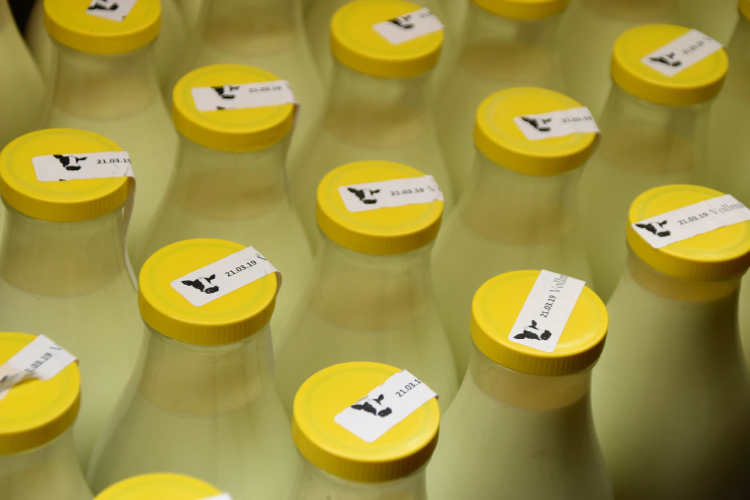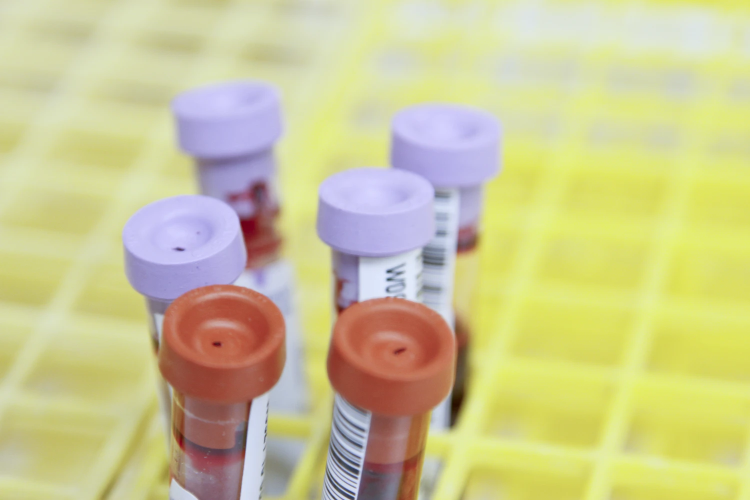
Have you ever thought about lactose intolerance? Felt any symptoms? Wondered about the causes? Let me tell you my story. It is far from being a complete guide to anything, but just my experience. The first time a friend told me about the four white poisons (refined salt, refined sugar, pasteurized milk and white rice/flour) I was at in the early stages of my process to veganism and I found the idea both good to know -in the first place- but weird at the same time. You know, like weird in why would I do that? Why would I stop consuming dairy products? Let's dive into: A Complete Guide to Lactose Intolerance: Causes and Symptoms.
The fact that milk was among them, called my attention- I love ice creams, and a little bit of cream cheese over my pasta and this and that .. but a point came eventually in which my body could not longer "correctly" process dairies: regular milk or very industrialized yogurts and dairy products were hell to my guts. Luckily I was not lactose intolerant, not in medical terms at least, but anyhow I continued my path towards putting dairies aside.

Anecdotes aside, whether you experienced something similar or not, whether you are a vegan or not... or maybe you just feel that something is not right when you drink milk, you came to the right place. On this opportunity, we'd like to share some information about Lactose Intolerance, which is unfortunately a medical condition that is affecting more and more people every year. But, what does it mean to be lactose intolerant? What causes lactose intolerance? Which are its early symptoms? Well, if you want to stay we'll tell you the basics of Lactose Intolerance.
Lactose intolerance is a medical condition and it happens when your body lacks the necessary enzyme to break down the sugar present in the milk, called lactose. It might be the case that you do have this lactase -the enzyme- but your body might still have problems to digest lactose.
As we always say in this cases, if you want to make changes in your diet please go for a medical check first. Noe everything is for everybody. But if you are pretty sure about lactose playing a bad part in your digestion you might consider the following data about Lactose Intolerance that can help your doctor with a more precise diagnosis:
You have to check with a doctor, but if you suspect that you are lactose intolerant, you can start by cutting out dairies off your diet and keep a record of the effects that this has. It might not happen with every dairy product. Test one at a time and remember to keep a record!
Another common practice among physicians is that they ask you to suspend diaries from your diaries and go to regular appointments to see if the symptoms -we'll get there- improve.
If the previous stages didn't come out as expected, you will have to take a test, probably. Among the most common medical tests are:

68% of people all around the world have some sort of impossibility in digesting lactose properly. The number drops greatly in America to 36% but it is a large figure, still.
Alright, we have a couple of aspects to consider here. Let's start by saying that there exist the world over, activist and non-activist people and groups that believe that consuming milk from a cow is not natural. Humans are the only mammals that consumes milk after the period of weaning is over and not only that, the milk comes from a cow. They say that what medicine calls "lactose intolerance" is actually a natural response. You may agree with this or not, but they do have a point, I think.
Lactose intolerance happens when your small intestines do not produce lactase -and enzyme- in necessary amount to digest lactose -milk sugar- properly.
The regular thing would be that this enzyme splits milk sugar into two different sugars for a better digestion: one of these sugars is glucose and the other is called galactose and they are both absorbed into your bloodstream if everything works well.
In case it doesn't work well, it means that someone is not doing the job right. That's how the human body works. If a piece fails, it cannot function harmoniously.
If a person has a deficiency in lactase, this means that the sugar milk instead og going to the bloodstream goes to the digestive system. Our natural flora will try to repel the intruder and that's where the symptoms show up.
However, the type of lactose intolerance is directly linked to what it causes it. Let's take a quick look!
If you are lactose intolerant whatever type the symptoms will not be very different. Common signs of this deficiency will show up shortly within 30 minutes up to 2 hours after ingesting food or drinks that contain lactose. Unfortunately most of the symptoms are not vey nice and easy to deal with. Common signs and symptoms include:
All of this happens because the lactose goes to your guts instead of your bloodstream. If you are experiencing any of these symptoms in relation to dairies, please check with your doctor or healthcare provider.

It is true that most dairy products contain lactose, but some contain higher levels of lactose than others. These are foods that you should avoid if you know that you are lactose intolerant or you just want to get rid of ultra processed food:
Milk, especially pasteurized milk, contains high levels of lactose. As mil is also an ingredient in many products, you should void these; too: baked products, some salad dressings, margarine, etc.
The process of making cheese, makes it easier to digest, especially softer types like ricotta. In case your level of intolerance is high, you should probably cut out cheese from your diet.
No cream, no butter, no ice creams.
If you prepare you own yogurt, you might digest it easier but ultra processed versions are not recommendable for lactose intolerant people, at all!
A double ration of sugar (lactose ans sugar from the cocoa) that will make it very difficult for your intestine to digest properly. Check labels, please before buying!

But don't worry... with the spread of veganism as a way of living, the market had to keep up and fortunately nowadays we find many lactose-free alternatives in the market. Word of advice! Try to go always for home made versions or buy natural.
Take a look at: What is Kefir and How to Make it at Home: Easy Recipe
Lactose-free milk: available at any market. Make sure you go for an enriched alternative
Well, fortunately we've brought some aspects for you to consider -again- about your diet. As we said, even though you are not lactose intolerant you want to give it a go to a more natural, cruelty-free and less industrialized version of classic milk-based products.
Why don't we try it? Our guts will be very happy, for sure! See you next time, warrior! and remember to check with your doctor, always!
You may be interested at: Why Probiotics are good for you? Learn their Health Benefits